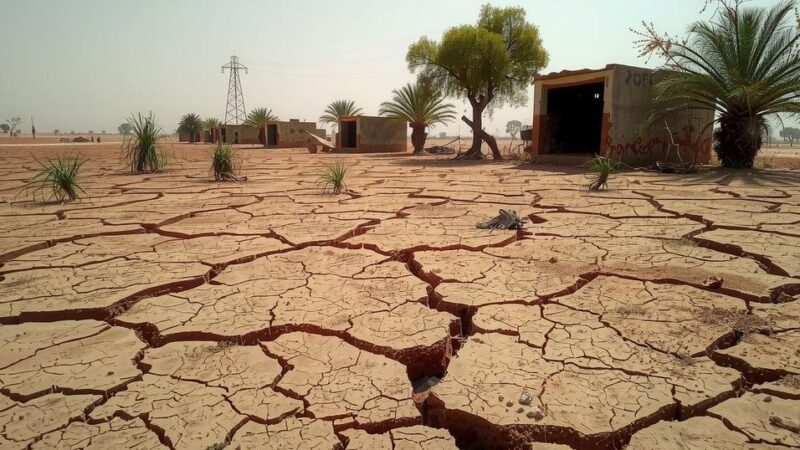Syria’s transitional government was sworn in, replacing the interim cabinet formed after Assad’s removal. Composed of 23 members, the government seeks stability and includes notable appointments from various backgrounds. The cabinet does not feature a prime minister and emphasizes inclusivity, aiming to regain international support and mitigate ongoing conflict.
On Saturday, Syria officially inaugurated its new transitional government, a significant development following the removal of the Assad family from power nearly four months ago. This Cabinet, consisting of 23 members from various religious and ethnic backgrounds, marks the inaugural leadership during Syria’s five-year transitional period, succeeding the interim government formed after Bashar Assad’s ouster in early December.
The transitional government does not feature a prime minister; instead, it operates under a secretary general, as outlined by the temporary constitution endorsed by interim President Ahmad al-Sharaa. This government structure was announced just before the onset of Eid el-Fitr, the festival that concludes the Muslim holy month of Ramadan, which begins in Syria on Monday. While many of the ministers are new faces, the posts of foreign affairs and defense have been retained by the previous holders. Anas Khattab, the new Interior Minister, was the head of the intelligence department prior to his appointment.
In his remarks, al-Sharaa proclaimed, “The formation of a new government today is a declaration of our joint will to build a new state.” Defense Minister Murhaf Abu Qasra shared his vision of establishing a professional army that is “from the people and for the people.” Notably absent from the new government are representatives from the U.S.-backed Syrian Democratic Forces and the autonomous civil administration in northeast Syria, despite a recent ceasefire agreement signed by al-Sharaa and SDF commander Mazloum Abdi.
Noteworthy additions to the ministerial roster include Hind Kabawat, a Christian activist opposed to Assad since the onset of the conflict in 2011, appointed as minister of social affairs and labor. Another significant appointment is Raed Saleh, the former head of the Syrian Civil Defense, now serving as minister for emergency disasters. Additionally, Mohammed Terko, a Damascus-based Kurdish figure, has been named the minister of education.
Mohammed al-Bashir, who led Syria’s interim government post-Assad, assumes the role of minister of energy, focusing on restoring the country’s damaged electricity and oil sectors. The new government’s primary objective is to put an end to the ongoing conflict and restore stability to a nation that has recently experienced violent unrest, resulting in significant casualties, particularly among the Alawite community.
The administration’s composition, featuring members from minority sects and included a woman, is viewed as an attempt by al-Sharaa to address Western demands for inclusivity in Syria’s political landscape. This strategy also aims to persuade Western nations to reconsider the economic sanctions imposed on Assad over the past decade, as the UN reports that 90% of Syrians are now living below the poverty line, with millions facing food aid shortages.
Hours preceding the announcement, the U.S. State Department advised American citizens of heightened potential for attacks during the Eid el-Fitr holiday, warning that such attacks could target embassies and international organizations in Syria’s capital, with various methods of assault possible, including individual attacks and explosive devices.
The swearing-in of Syria’s new transitional government signifies a critical step toward attempting stability and rebuilding a war-torn nation. With its diverse cabinet and focus on inclusivity, the government aims to tackle the pressing issues of reconstruction and security while addressing international concerns about representation. The response from the West, particularly regarding economic sanctions, will be pivotal in shaping Syria’s recovery in the coming years.
Original Source: www.local10.com






